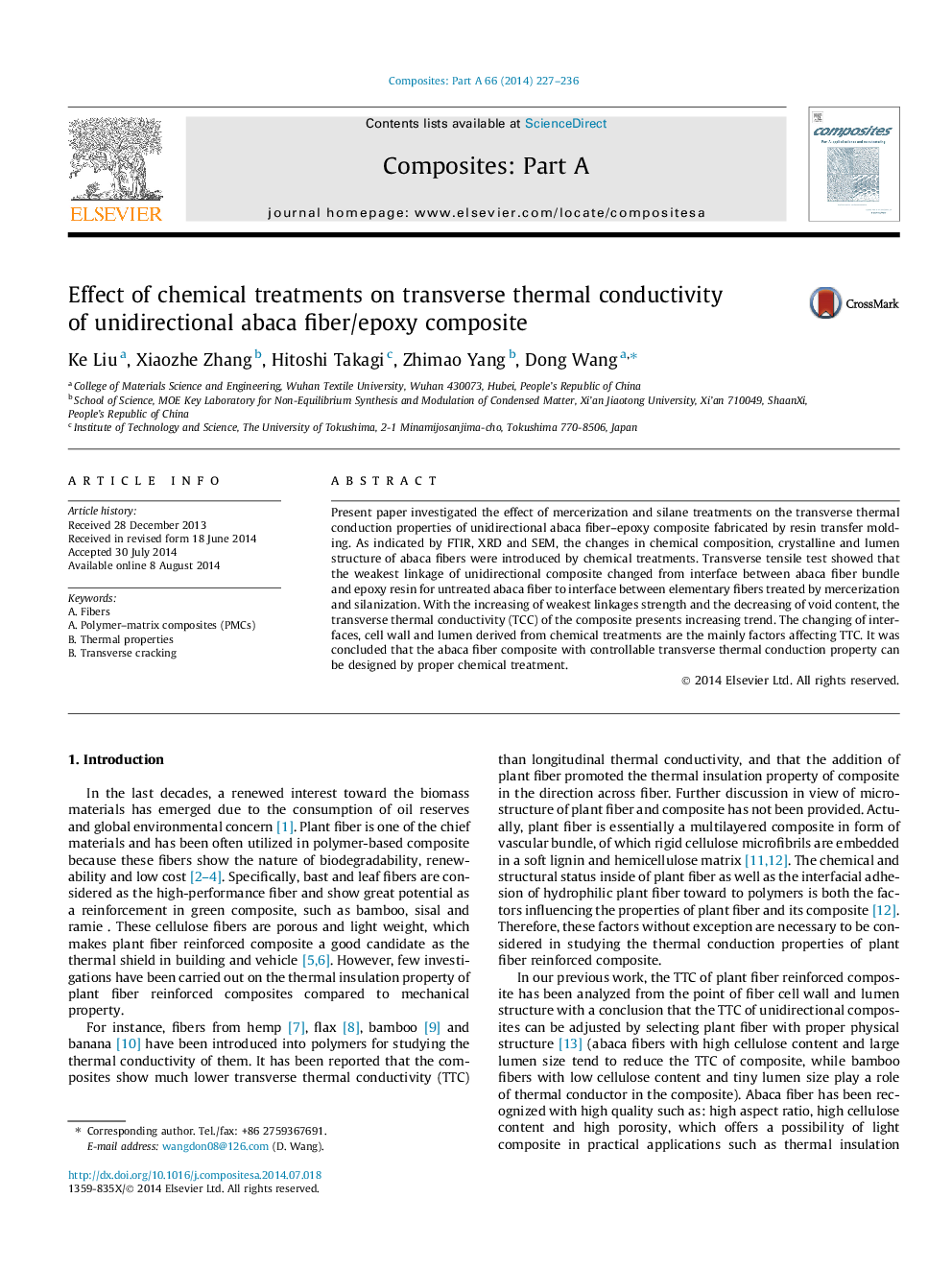| Article ID | Journal | Published Year | Pages | File Type |
|---|---|---|---|---|
| 1465971 | Composites Part A: Applied Science and Manufacturing | 2014 | 10 Pages |
Present paper investigated the effect of mercerization and silane treatments on the transverse thermal conduction properties of unidirectional abaca fiber–epoxy composite fabricated by resin transfer molding. As indicated by FTIR, XRD and SEM, the changes in chemical composition, crystalline and lumen structure of abaca fibers were introduced by chemical treatments. Transverse tensile test showed that the weakest linkage of unidirectional composite changed from interface between abaca fiber bundle and epoxy resin for untreated abaca fiber to interface between elementary fibers treated by mercerization and silanization. With the increasing of weakest linkages strength and the decreasing of void content, the transverse thermal conductivity (TCC) of the composite presents increasing trend. The changing of interfaces, cell wall and lumen derived from chemical treatments are the mainly factors affecting TTC. It was concluded that the abaca fiber composite with controllable transverse thermal conduction property can be designed by proper chemical treatment.
